What is Type 1 Diabetes?
Type 1 diabetes (T1DM) is an autoimmune disease that occurs when your own immune system destroys the insulin-producing cells in your pancreas. Without insulin, your body cannot break down glucose to produce energy.
Why Do We Care About Glucose and Insulin?
Insulin and glucose work together to keep all their levels steady. Insulin is a hormone needed for glucose to enter cells and produce energy.
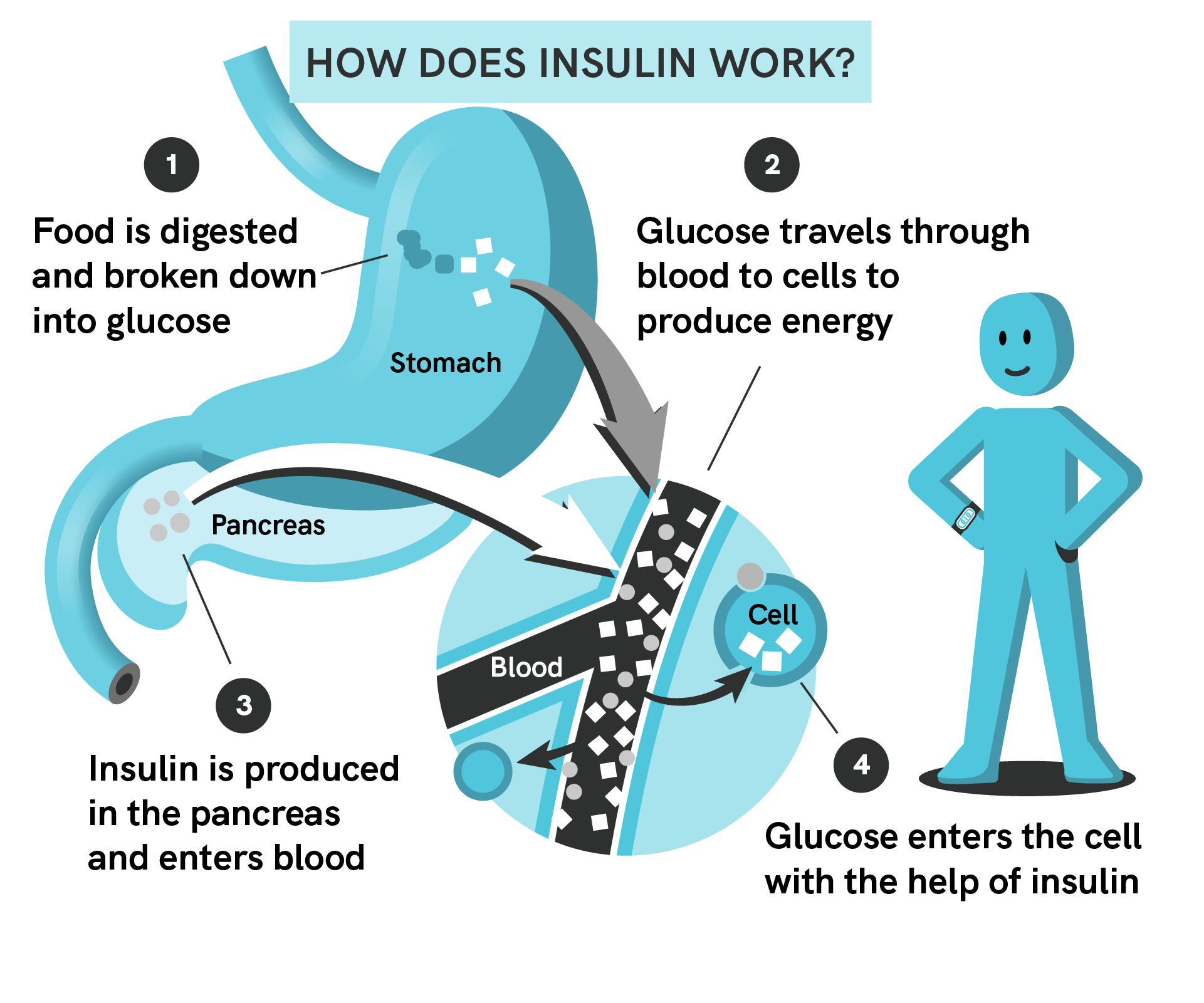
In T1DM, insulin is not produced and the cells are deprived of glucose, which builds up in the bloodstream.
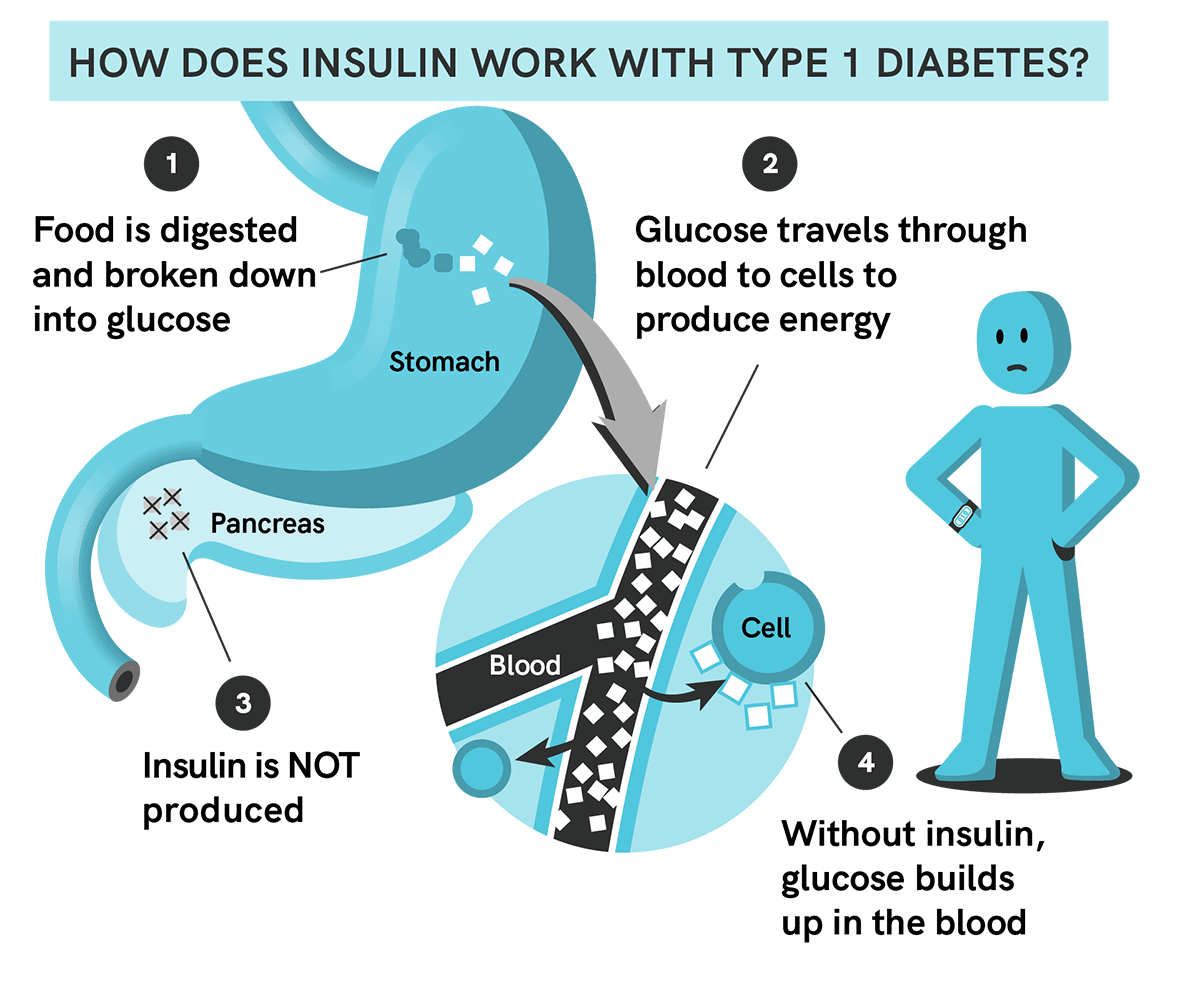
What symptoms will I experience with T1DM?
As glucose builds in your bloodstream, and your cells are not able to convert glucose to energy, you may experience the following symptoms:
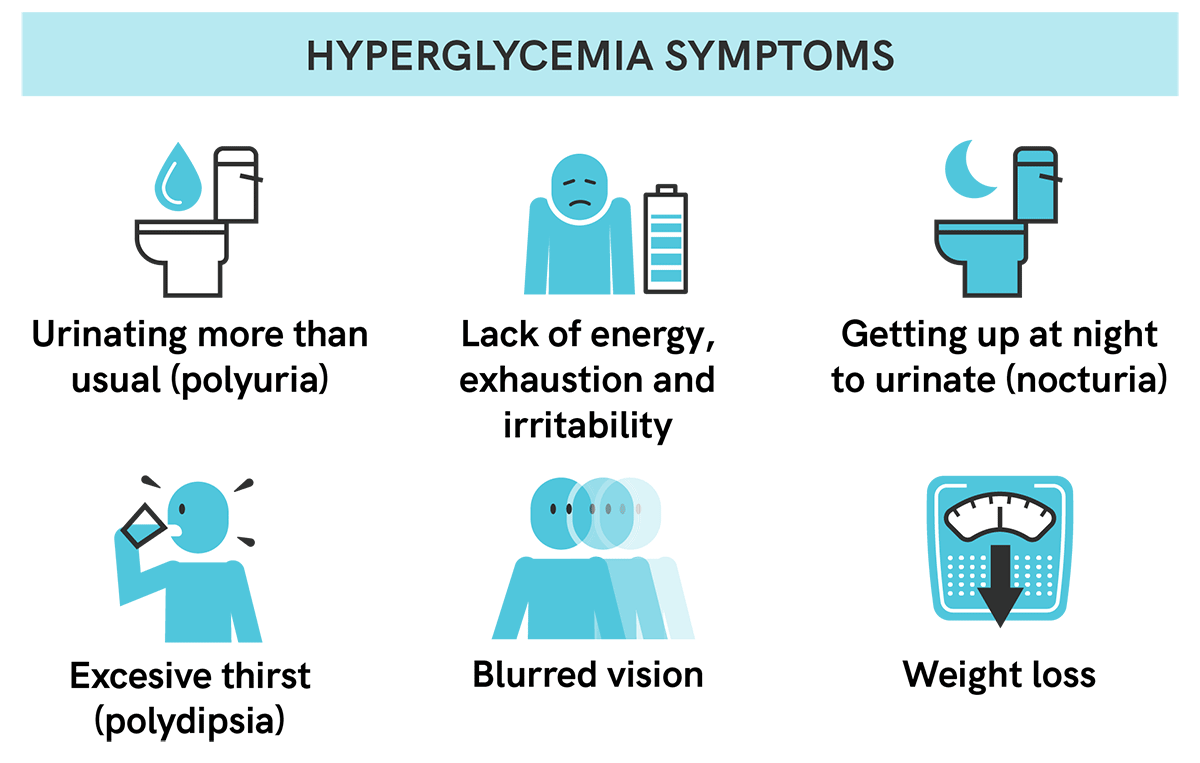
How do I know I have T1DM?
Blood tests can be performed to verify a diagnosis of T1DM. The most common tests for diabetes include blood glucose (BG) and a hemoglobin A1c (A1c).
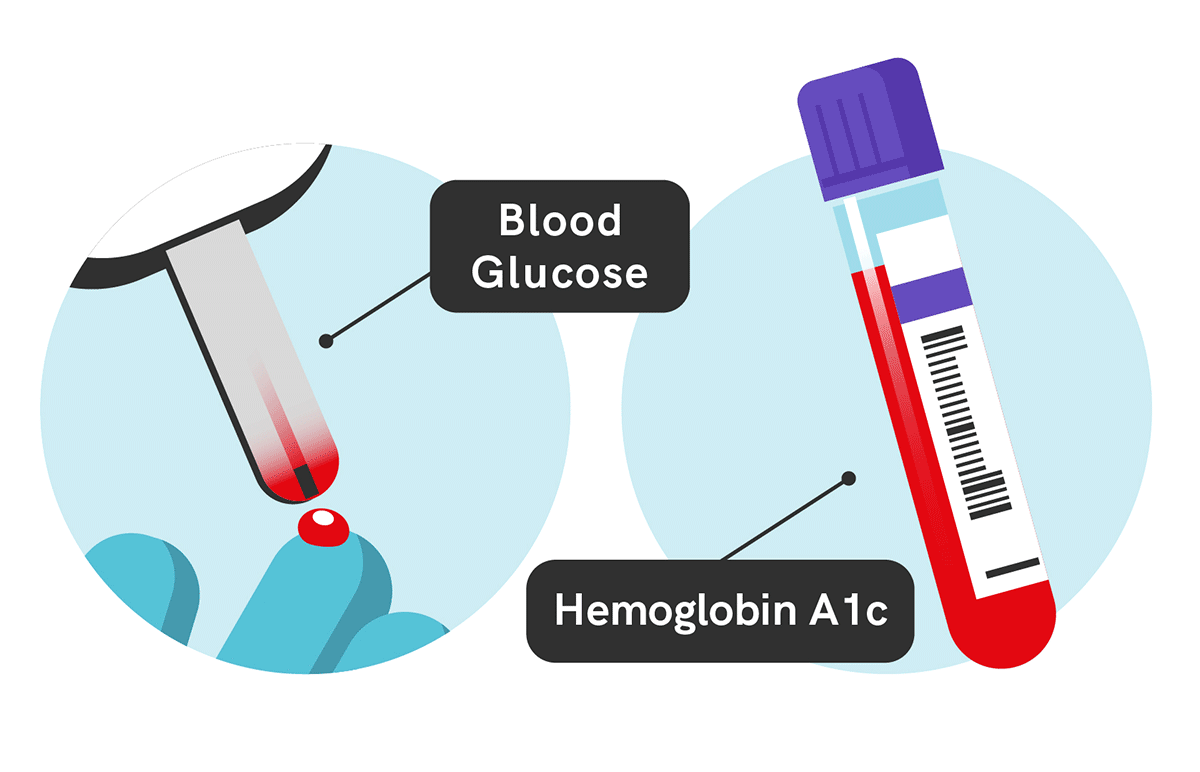
Blood glucose measures how much glucose is in your blood when the test is taken. A1c measures the average blood glucose level over the past 3 months.
Why Did I Get T1DM?
No one is sure exactly why some people get T1DM.
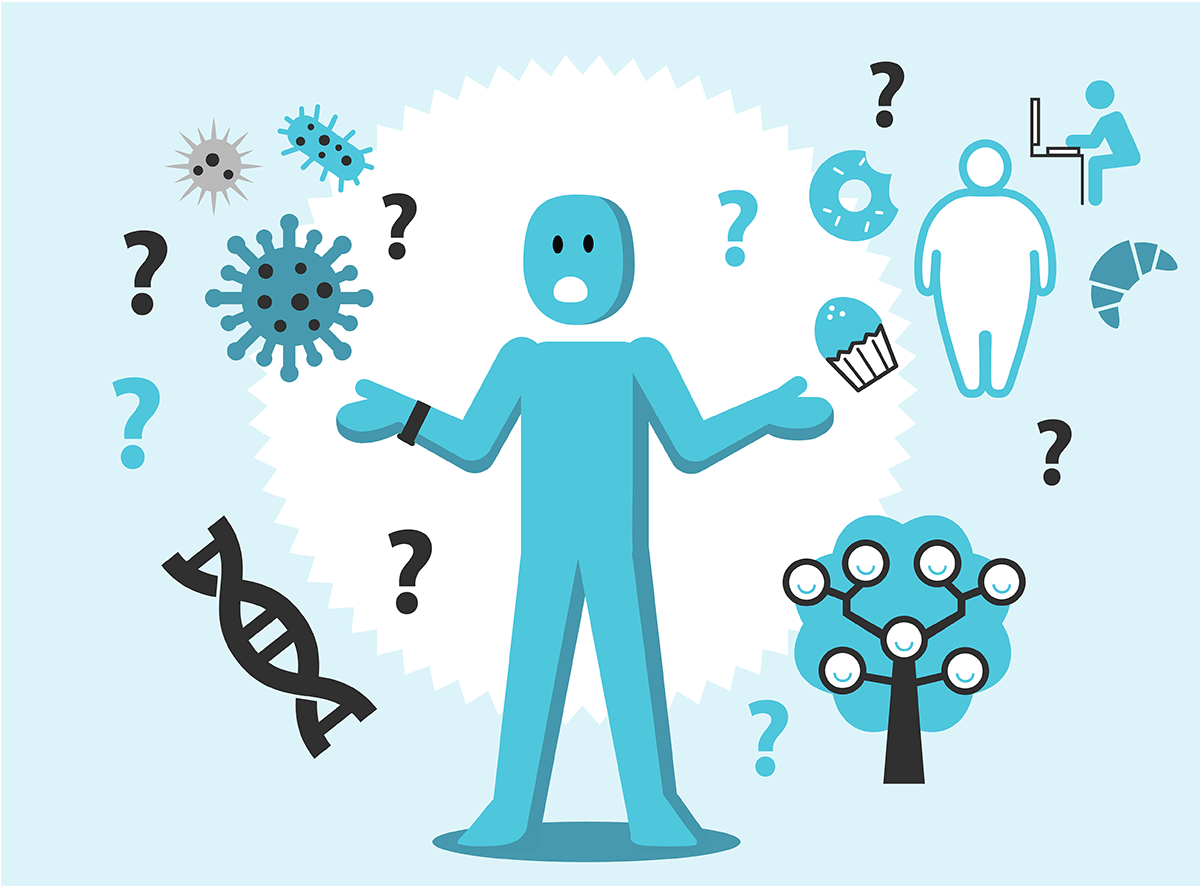
Researchers have found that you are more likely to develop T1DM if a close relative, such as your parents or siblings, has it.
There is no specific gene for T1DM, but there is a correlation between T1DM and the genes that affect your immune system.
Certain infections can also cause your immune system to destroy the insulin producing cells in your pancreas.
We do know that T1DM most commonly develops between the ages of 4 to 6 and 10 to 14, but can also occur in young adults.
Leave a Reply